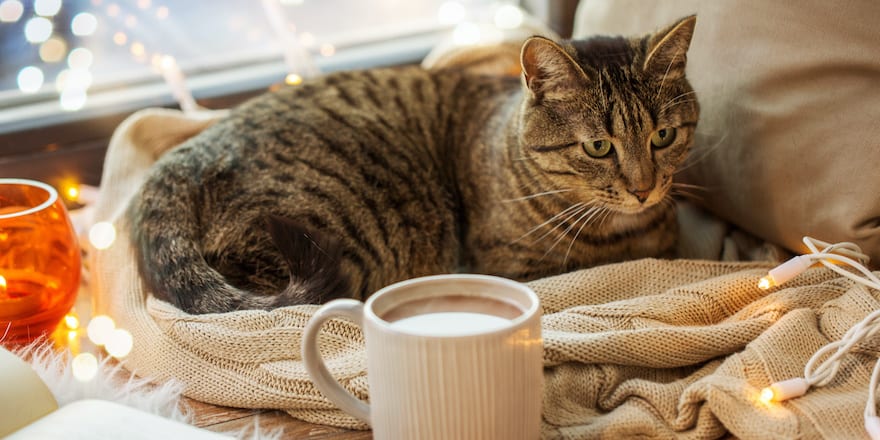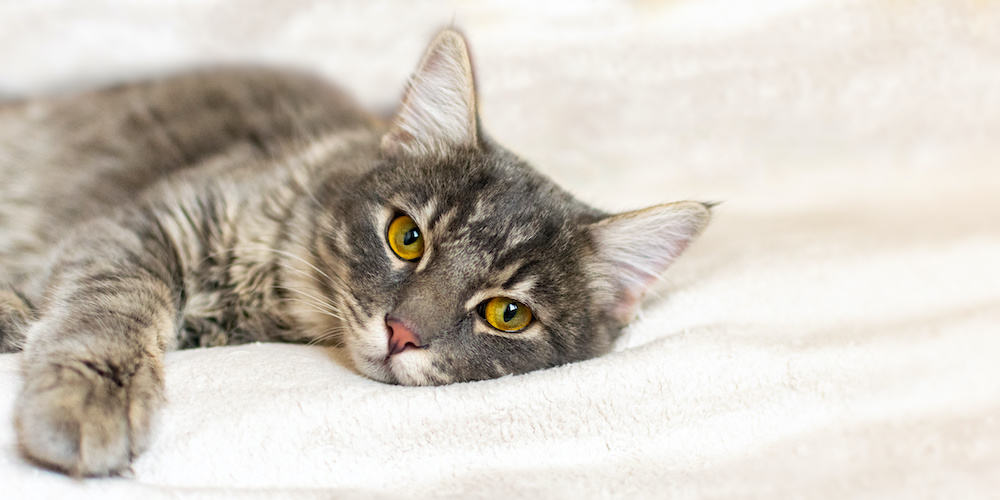This is a cause for concern for many owners, and rightly so. If your cat stops eating, I advise you above all to distinguish between the following two symptoms.
Anorexia, when an animal completely stops feeding, and hyporexia, when appetite is decreased. Sometimes other symptoms are also visible.
Making this distinction is necessary because the degree of urgency is not the same. In the case of anorexia, the consequences for your cat’s health can quickly become more serious.
The causes of a loss of appetite are numerous, ranging from behavioral origins to the presence of a disease.
A veterinary consultation is necessary and helps determine the cause of anorexia or hyporexia in your cat. This step is important because treatment and management depend on the diagnosis.
📚 Read also | A veterinarian has selected the best cat kibble
Why isn’t my cat eating?
A sign of a problem in this predator
“My cat isn’t eating anymore!”: In veterinary consultations, we are frequently alerted by owners who notice an unusual lack of appetite in their cat.
Your cat is a predator. To avoid appearing vulnerable, it shows few signs of pain and discomfort. You may still be alerted by certain behaviors, such as loss of appetite.
Behavioral causes
Cats are very sensitive to stress. Any source of anxiety in their environment can affect their behavior. You may then notice a loss of appetite in your pet.
Carefully observe your cat to determine whether the cause is behavioral. The slightest change in its environment can upset it. For example, have you recently moved? Has a new animal (or a new human!) arrived in your household?
Your cat likes its feeding routine. A change in its habits can then cause a loss of appetite. Have you recently moved its food bowl? Or changed the brand of its kibble?
An illness
If we have less appetite when we are sick, the same goes for our cats!
Several diseases can lead to anorexia or hyporexia. These can include osteoarthritis, an infectious disease, or poisoning, for example from ingestion of a toxic plant.
In the case of an illness, other parameters are considered in the veterinary diagnosis such as your cat’s age, its sex, or its vaccination status.
For example, if your female cat is not spayed, she may suffer from a disease called a pyometra. It is an infection of the uterus in which a loss of appetite is often present. To learn more about this disease, I invite you to consult this study.
Oral pain
This is a situation we frequently encounter in veterinary practice: a loss of appetite linked to the presence of tartar. Because the tartar is painful, your cat eats less due to pain in its mouth or teeth.
In this case, a dental scaling performed by your veterinarian is enough to resolve the problem.
Furthermore, if your cat has a broken tooth, the resulting pain can also be responsible for a loss of appetite.
📚 Read also | The best wet cat foods online according to a veterinarian
If it stops eating and drinking
Adipsia
It is difficult to know how much water your cat drinks on a daily basis. This is especially true if its diet is wet.
Indeed, dry kibble contains less moisture. A cat fed kibble therefore drinks more water. But if your cat eats wet food, the latter meets more of its hydration needs. It therefore drinks less from its water bowl.
In general, you will have a hard time noticing that your cat is drinking less. We call it adipsia when an animal stops drinking altogether.
Risk of dehydration
But if you notice adipsia in your cat, I recommend that you consult your veterinarian urgently. Due to the risk of dehydration and its consequences, prompt treatment and rehydration are necessary.
However, it may also be that your cat drinks more water than usual. This is known as polydipsia. When a cat eats less and drinks more, several conditions, such as kidney failure, may be involved.

If it stops eating and sleeps a lot
When a cat sleeps more than usual, this behavior can sometimes be considered a symptom. It may be apathy or listlessness. If you notice your cat eating less and sleeping more, you should report it to your veterinarian. Any clinical sign is part of the diagnosis.
Furthermore, other symptoms may accompany a loss of appetite, such as vomiting or even fever.
If it stops eating and doesn’t defecate
Is your cat no longer defecating? If it goes to the litter box more frequently without defecating, this is called an intestinal obstruction. Intestinal transit comes to a halt due to the presence of an obstruction. It may include:
- a foreign body: for example, a string swallowed by your cat
- an accumulation of feces (constipation)
- the presence of hairballs
Please note that a cat that cannot defecate can easily be mistaken for a cat that cannot urinate.
If your cat is not urinating, it is probably a urinary obstruction. A loss of appetite may also be observed in this case.
Intestinal obstruction and urinary obstruction represent an emergency in cats. You should therefore contact your veterinarian promptly.
Consequences of a cat’s loss of appetite
Because of cats’ metabolism, anorexia can quickly have serious consequences. This is not the case in dogs, which are more tolerant.
When a loss of appetite persists for several days in a cat, hepatic lipidosis can develop.
Hepatic lipidosis is a liver disease. If food intake decreases, the liver begins to accumulate lipids. The animal’s life may then be at risk and veterinary hospitalization is essential.
Anorexia or hyporexia: a veterinary consultation is necessary! However, I strongly recommend that you urgently contact your veterinarian if your cat has not eaten at all for more than 24 hours. Hospitalization and assisted feeding should be implemented.
Sources and scientific studies
Gwenaël Outters, “Anorexia in the cat constitutes an emergency”, La Semaine Vétérinaire, no. 1434, 01/21/2011, pp. 34 and 35
Samantha Taylor et al., “2022 ISFM Consensus Guidelines on Management of the Inappetent Hospitalized Cat“, Journal of Feline Medicine and Surgery, July 1st, 2022



